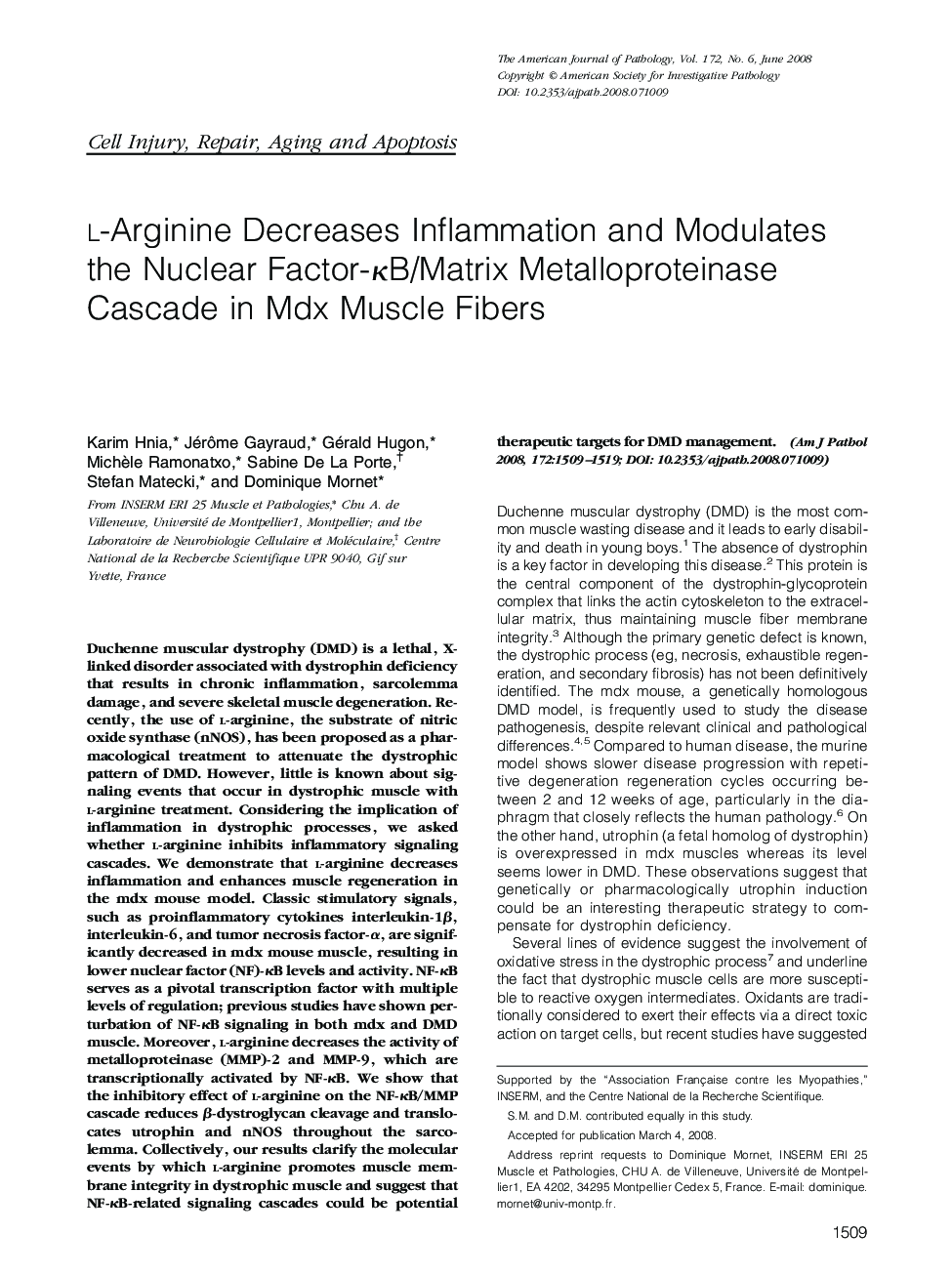| Article ID | Journal | Published Year | Pages | File Type |
|---|---|---|---|---|
| 5938566 | The American Journal of Pathology | 2008 | 11 Pages |
Duchenne muscular dystrophy (DMD) is a lethal, X-linked disorder associated with dystrophin deficiency that results in chronic inflammation, sarcolemma damage, and severe skeletal muscle degeneration. Recently, the use of l-arginine, the substrate of nitric oxide synthase (nNOS), has been proposed as a pharmacological treatment to attenuate the dystrophic pattern of DMD. However, little is known about signaling events that occur in dystrophic muscle with l-arginine treatment. Considering the implication of inflammation in dystrophic processes, we asked whether l-arginine inhibits inflammatory signaling cascades. We demonstrate that l-arginine decreases inflammation and enhances muscle regeneration in the mdx mouse model. Classic stimulatory signals, such as proinflammatory cytokines interleukin-1β, interleukin-6, and tumor necrosis factor-α, are significantly decreased in mdx mouse muscle, resulting in lower nuclear factor (NF)-κB levels and activity. NF-κB serves as a pivotal transcription factor with multiple levels of regulation; previous studies have shown perturbation of NF-κB signaling in both mdx and DMD muscle. Moreover, l-arginine decreases the activity of metalloproteinase (MMP)-2 and MMP-9, which are transcriptionally activated by NF-κB. We show that the inhibitory effect of l-arginine on the NF-κB/MMP cascade reduces β-dystroglycan cleavage and translocates utrophin and nNOS throughout the sarcolemma. Collectively, our results clarify the molecular events by which l-arginine promotes muscle membrane integrity in dystrophic muscle and suggest that NF-κB-related signaling cascades could be potential therapeutic targets for DMD management.
